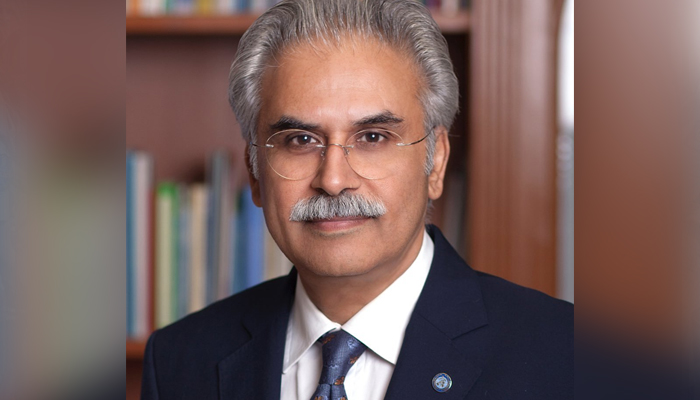Both coronavirus patients now 'stable and improving': SAPM Zafar Mirza
Sindh health department added that no positive case of coronavirus was reported during the day
February 27, 2020

ISLAMABAD/KARACHI: Special Assistant to the Prime Minister on Health, Dr Zafar Mirza, said Thursday the two patients who were diagnosed with coronavirus a day earlier were stable and their condition was improving.
In a tweet, Dr Mirza said: "Both patients of #COVIDー19 are stable and improving.
"Contacts traced until now and tested are all negative," he added.
Earlier in the day, the family of Pakistan's first confirmed coronavirus patient had been cleared of suspicion for being infected, the Sindh health department said.
No positive coronavirus case today
In a statement, the health department said the 22-year-old patient's family underwent medical tests to check if they too were infected with the coronavirus; however, they tested negative and were consequently cleared.
It further noted that no positive case of coronavirus was reported during the day.
Read more: Pakistan's first coronavirus case confirmed in Karachi
After the young man was tested positive, he was immediately placed in a quarantine at a private hospital on the National Stadium Road, while his family was placed in an isolation ward. The health department then obtained details of the passengers he had travelled with and dispatched a team to inspect his residence as well as his neighbourhood.
Screening machines may not have worked
The World Health Organization’s (WHO) standard operating procedures (SOP) dictate that everyone who comes into contact with the infected person should be checked for the virus.
The 22-year-old's condition had reportedly started to deteriorate on February 18 and he underwent a hijama — or cupping therapy — at a local health centre in Iranian city of Mashhad. After that, he suffered from a headache.
He had arrived in Karachi on February 20, indicating that there were chances that the thermal screening machines at the airports for those entering the country may not have worked after all.
The machines are supposed to immediately detect higher-than-usual body temperature.











